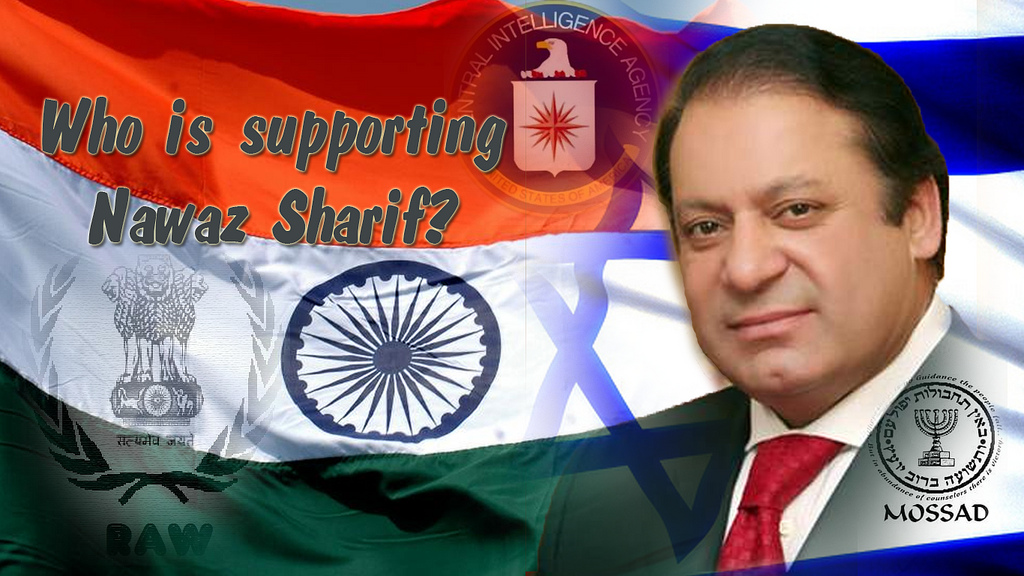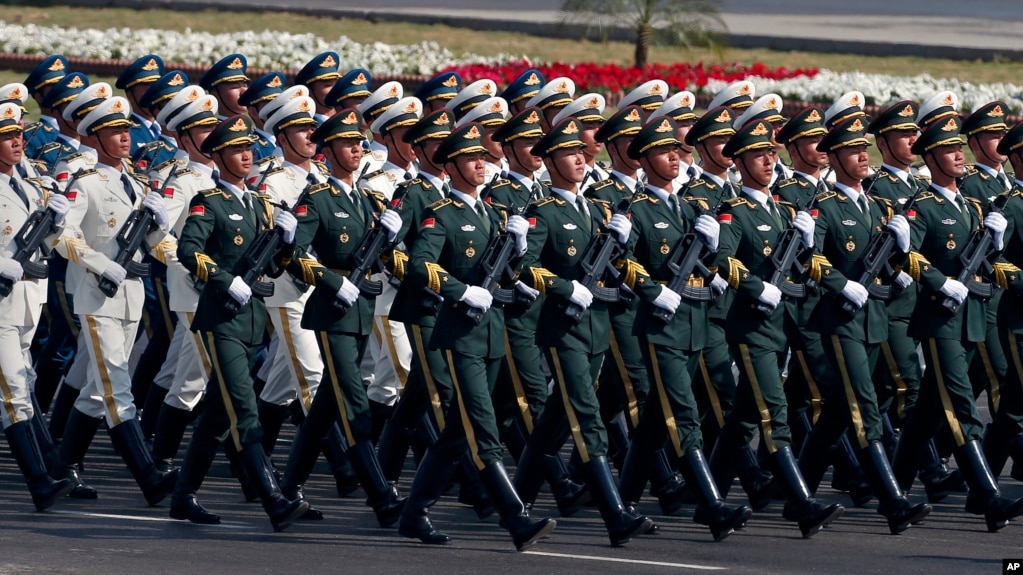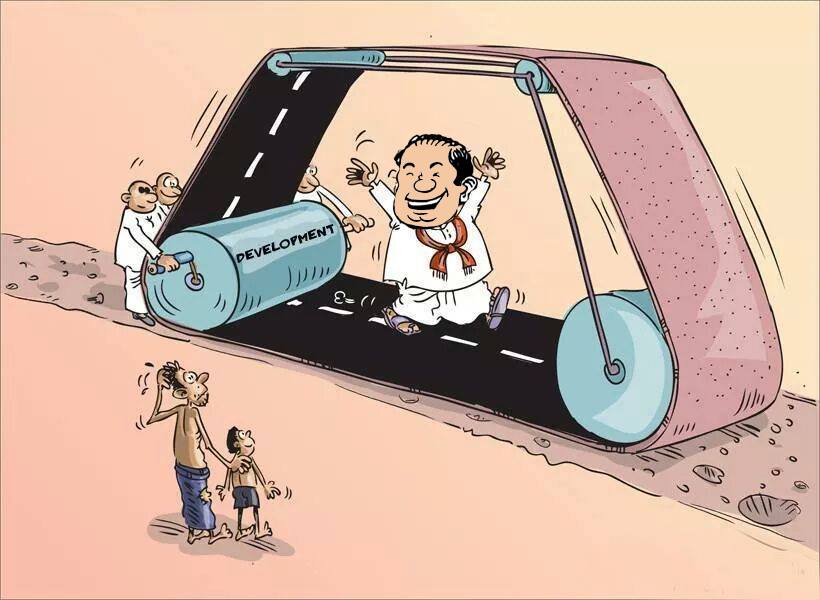By Syed Haider Raza Mehdi
Nawaz’s aim is political martyrdom.
As long as he controls the party he will continue to create chaos.
But, as history tells us, this great land of Punjab knows which side of the paratha has more ghee.
And with each passing day as the power struggles between the brothers Sharifs and other groups within PMLN intensify we will see his grip loosening.
This will make Nawaz and especially Princess Tubelight Maryam Safdar, even more desperate and they will resort to desperate measures. To understand Nawaz one only has to recall his instructions to Sohail Zia Butt many years ago.
“Butt saheb Thoray jeean golian sholian….thay Thora jiaa khoon kharrapa!”
Therefore, I have a feeling of great disquiet. A sense of, God Forbid, a major urban terrorist attack and or some highly potent acts of violence. Perhaps even attempts at assassinations. These could be across, political, ethnic, sectarian and religious divides to create more chaos and disorder.
Some orchestrated by PMLN and some by our “friendly” neighbours, India and Afghanistan and our Godfather, the USA.
The last mentioned, continously attempting to keep Pakistan unstable, through political unrest and economic meltdown, create civil unrest, weaken Pakistan and achieve their ultimate objective of defanging us of our nuclear assets.
Iran will likely not try anything funny because a stable Pakistan is in their interest. But some of our other “Middle Eastern brothers” especially Saudi Arabia, will silently support this subversion of Pakistan now no longer expecting much from us. They are very angry at us for not supporting their Yemen misadventure and helping them kill over 20,000 Yemeni women cholden and civilians. They are also extremely upset that we didn’t join their mad sectarian war against Iran sponsored by the Trumpeter from the USA, despite the very secretive command of a phantom anti terror coslition headed by an extremely uncomfortable Raheel Sharif. And lastly not siding with them against their Qatari misfire.
Saudi Arabia has now openly allied itself to the USA, India, Israel, UAE, Egypt, Regional bloc in direct opposition to the Chinese, Russian, Pakistani and Iranian bloc.
So major geo political realignments driven by selfish national Interests, which must always reign supreme, have changed our relationship with Saudi Arabia.
The same goes for the UAE, which is now also very closely allied to Israel. UAE faces significant economic challenges and competition from CPEC and Gawader and now Qatar. So I don’t see them shedding any tears to see a weak and on its knees, Pakistan.
These anti Pakistan external forces will also support the PMLN in creating major chaos within to serve their own interests and not out of any love lost for Nawaz.
Nawaz has clearly announced an “undeclared” all out war against the Army, with his recently acquired “Nazriaathee” dogma. He hopes to goad and force the Army into some kind of action. But one sincerely hopes that the Army does not fall into this trap.
But one does hope and pray they also provide full support to the Supreme Court and investigators in doing their jobs. This is a sad reality. But in a Nation of Mafia Dons, with an ex PM your biggest, this support is critical.
Today only Imran, the Supreme Court, and the Army are the three internal saving graces. China being the one major external one.
In my opinion, an ideal scenario given the current environment and without any extra constitutional steps would constitute the following outcomes.
1. NAB references against Nawaz and family to be filed ASAP.
2. Irfan Mangi as DG to head investigation
3. Quick trial and conviction of Nawaz and family. Jail. Seizure of assets and lifetime disqualification. The evidence is all there. And conviction and lifetime disqualification for others, especially Ishaq Dar.
4. NAB reference against PM Abbasi for LNG. Trial, lifetime disqualification, conviction and Jail.
5. Shahbaz Sharif and Rana Sanaullah Model Town trial followed by Conviction. Disqualification and jail.
6. Zaradari NAB references. Trial. Disqualification, Conviction and Jail. Same for Faryal Talpur.
7. Census based demarcation and remarcation of election constituencies.
8. Changes of heads of NAB, FBR, FIA, State Bank, SECP.
9. New constituted Election Commission comprising competent and honest professionals without biases.
10. Trial and conviction of Zafar Hijazi of SECP and Saeed Ahmed of NBP with extremely harsh and exemplary punishment to send a message to senior bureaucrats that they can, and will be taken to task if they do the bidding of their political masters by indulging in illegal and criminal acts.
All above through constitutional petitions filed with the Supreme Court.
That’s my ideal scenario. But if wishes were horses, beggars would be kings.
Of course many will target this as an attempt to remove a “legally and democratically” elected PM through a judicial coup.
The answer to this is simple. If your Prime Minister and family and your Finance Minister and current PM are criminals, crooks, money launderers, irrespective of how they were elected, they must face the due process of law.
And yes this process must go on to catch others as the judicial process gains strength and investigators are able to do their jobs without fear.
Therefore, in my opinion, this is the only way for us progress, positively.
The people of Pakistan have another golden opportunity to cleanse the Augean stables.
We owe it to all our brave sons and daughters, military and civilians who gave the ultimate sacrifice for Pakistan and to our future generations to fix ourselves, once and for all.
We must not lose this opportunity to rid us of the cancer of Nawaz and Zaradari and all they represent and everything that’s corrupt in any institution, civilian or military.
Let’s not forget that Our Flag flutters not because of the breeze, but the dying breaths of its brave men and women who died, defending it.
-Haider Mehdi








